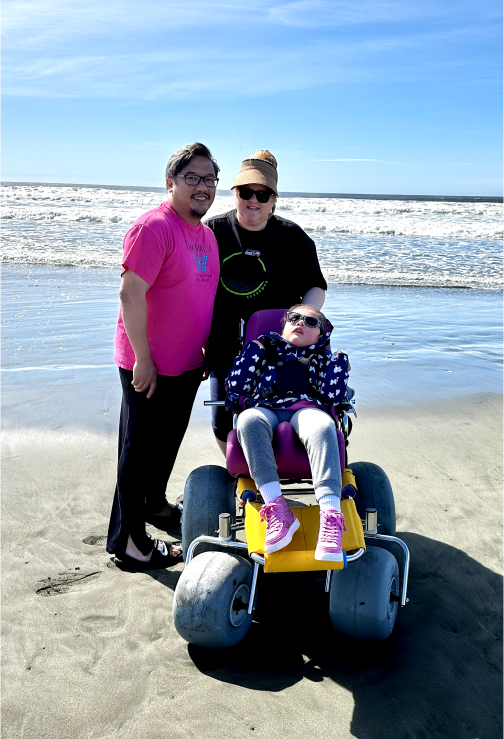
Amelia
Living With Batten Disease
Our daughter, Amelia, was diagnosed with CLN1 disease in 2019 at the age of two. Prior to her diagnosis, she had met milestones and was a happy, healthy child. She was curious, loved books, enjoyed the outdoors, and made social connections with those around her. Her giggles melted our hearts.
Shortly after her first birthday, she began to regress socially and cognitively. Numerous appointments with specialists provided few answers for the regression and delivered a false diagnosis of autism. By the time Amelia was two years old, she had lost the ability to walk, speak, and there were signs of visual deterioration as well. The CLN1 diagnosis was a complete shock. We had never heard of the disease, nor had many of the doctors we would soon come in contact with. That unfamiliarity certainly underscores the necessity for more research into this rare and devastating disease.
Amelia is currently seven years old. She is now blind, non-verbal, non-ambulatory, and severely cognitively impaired. She is unable to hold her head up, sit, or reposition her body on her own, and is dependent on a gastrostomy tube for nutrition. She requires around-the-clock care. Amelia suffers from myoclonic jerks, multiple types of seizures, hypertonia, and hip dysplasia.
We treasure the smiles she gives us as she navigates these challenges with such amazing strength. As a family, we have had to completely reimagine what life will look like.
When Amelia was diagnosed, we grieved the loss of her future, what she may have accomplished, and the life we had dreamed for her. Instead of play dates, she has doctor’s appointments. Instead of cookies and ice cream, she has syringes filled with seizure medications.
Children with CLN1 disease rarely live past the age of ten. However, we have known several families who have lost their children much sooner. Amelia, and others with CLN1, deserve better. Having access to a treatment such as enzyme replacement therapy would be a life-changing breakthrough. This treatment would be a gift of time. Establishing a CLN1 registry, a natural history study, and identifying biomarkers are crucial steps on the pathway toward a clinical trial.
We have the opportunity to give these children a fighting chance, and the hope of preserving skills and improving their quality of life. Time is of the essence.
To learn more, visit https://www.newsweek.com/family-devastated-batten-disease-diagnosis-1831005
To visit the Batten Disease Registry, click here
